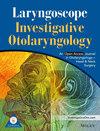The aim of this study was to evaluate the respiratory-swallow coordination (RSC) in healthy, dysphagic, and subjects with blocked, unblocked or without tracheostomy cannula (TC) over 2 h with focus on unintended deglutition.
In a single center (cross-sectional) observational study, a total of 65 subjects were included. Swallowing processes were recorded using RehaIngest (Hasomed GmbH, Magdeburg, Germany), combining electromyography (EMG) and bioimpedance (BI) inputs. Group differences were calculated using non-parametric tests, the influences of age and gender were evaluated using regression analysis.
Respiratory patterns from 3761 swallows were evaluated. Nineteen healthy and 46 dysphagic subjects, including 15 without TC, 15 with blocked TC and 16 with unblocked TC, were recorded. In the dysphagia cohort unblocked and without TC demonstrated increased post-deglutitive expiration (p = 0.012, p = 0.001) and a decrease in post-deglutitive inspiration (p = 0.028, p = 0.013) compared with healthy probands. In addition, a higher proportion of subjects demonstrating post-deglutitive expiration was recorded amongst probands with unblocked TC compared to blocked TC (p = 0.012). Neither age nor gender significantly impacted the aforementioned outcomes.
Our novel cross-sectional study shows that the RSC adapts in a compensatory fashion in the acquired dysphagia cohort. The adaptation depends on the occurrence of dysphagia and the type of TC. If the TC cuff is blocked, patients likely have an inadequate adaptation of the RSC, mainly because of the absence of a transglottic air flow. These findings indicate that RSC and TC care should be closely incorporated into clinical routine to improve dysphagia therapy.
1



